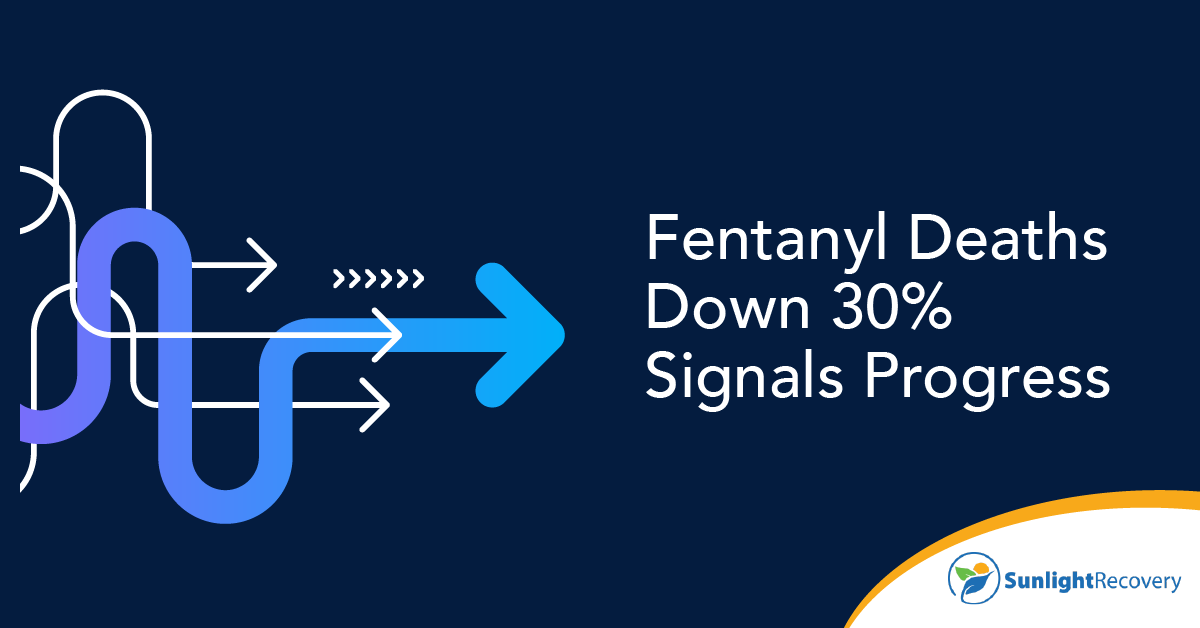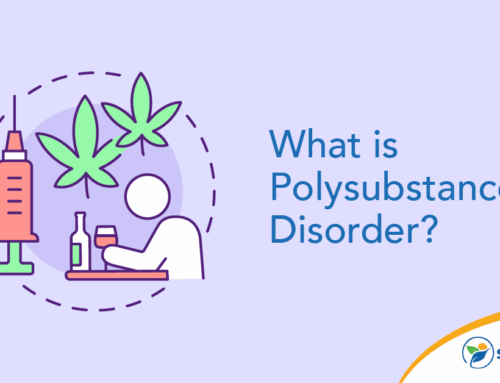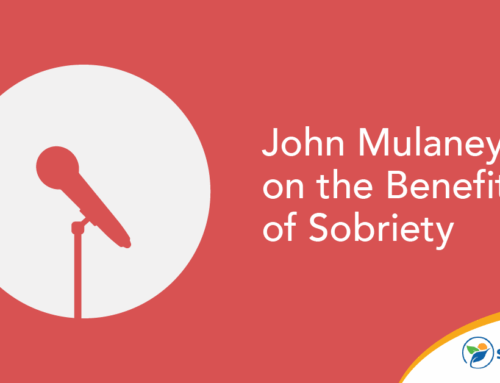In 2023, there were approximately 114,000 overdose deaths in the United States. A vast majority of those deaths were due to fentanyl. However, according to the Centers for Disease Control and Prevention, the number of overdose deaths decreased by 14.5% from June 2023 to June 2024, partly due to reduced potency in illegally made fentanyl pills. While a decrease in fentanyl deaths in 2024 is encouraging, it also proves that efforts should continue to keep this trend moving in a positive direction.
Understanding the Impacts of Fentanyl
A Schedule II controlled substance, fentanyl is a powerful opioid painkiller that’s approximately 100 times more potent than morphine. It’s used to treat severe pain from conditions such as advanced cancer and surgery. Side effects include relaxation, drowsiness, euphoria, dizziness, sedation and pain relief.
Fentanyl is a synthetic medication that’s cheap and easy to produce. When produced illegally, it’s often mixed with other illicit drugs and handed off as a fake prescription, such as oxycodone or diazepam. Unknowingly, an individual will take the drug thinking it’s something else and overdose on fentanyl.
In a random sampling by the U.S. Drug Enforcement Agency, nearly half of all counterfeit fentanyl pills contained 2 milligrams of the drug, which is enough to cause death. Survivors of fentanyl overdoses also face a long list of severe health problems, including:
- Addiction. Long-term fentanyl use can cause severe withdrawal symptoms, making it difficult to stop using without medical treatment.
- Memory loss. A fentanyl overdose can cause a lack of oxygen to the brain, leading to brain damage and decreased cognitive function.
- Mental health struggles. Many individuals use fentanyl to deal with mental health issues like depression and anxiety. The symptoms of these illnesses are often worse with opioid use.
- Increased risk of overdose. Continued use of fentanyl increases the risk of overdose, especially when used alongside alcohol or other drugs.
- Financial and social issues. Opioid addiction can cause financial difficulties as money is needed to support the habit. Addiction can also tear families and relationships apart.
Why the Number of Fentanyl Deaths in 2024 Decreased
The decline in fentanyl deaths in 2024 is due to a variety of reasons.
Reduced Fentanyl Supply
Combined efforts between law enforcement agencies and the DEA, including intercepting fentanyl shipments and attacking the drug trafficking networks, have pulled more than 10 million pills and 980 pounds of fentanyl powder from circulation in the United States in 2022 alone. Confiscating these illegal drugs has helped reduce the number of accidental overdoses and deaths.
Increased Access to Narcan
Narcan, or naloxone, is a medication that reverses the effects of an accidental opioid overdose. Providing Narcan to first responders, community organizations and even private citizens has helped prevent overdose.
Better Access to Treatment
Increased efforts to provide medication-assisted treatments and addiction treatment programs to low-income individuals and those without insurance have helped many Americans address their addiction. It’s also prevented relapses for many.
Public Education
Education is often the key to preventing drug deaths in the United States and fighting addiction. Many organizations have launched campaigns against fentanyl use, making the public more aware.
Building a Robust Support System
The decrease in fentanyl deaths in 2024 is excellent news. To support those who are still at risk for addiction and overdose, a strong, comprehensive support system is needed.
Increasing Access to Treatment
One factor that contributes to the opioid crisis across the United States is a lack of access to treatment, especially for those living in rural areas. Increasing the number of health centers in high-need areas will help many individuals manage addiction. Medication-assisted treatments using drugs such as methadone and buprenorphine have proven effective at preventing relapse and reducing the number of overdose deaths.
Law Enforcement and Policy Changes
Law enforcement, policymakers and health care providers must work together to prevent illegally made fentanyl from making it into the hands of users. This can be accomplished through enhanced border patrol measures, better tracking of prescriptions and tougher punishments for those illegally producing fentanyl pills.
Family Support
Drug addiction is not just an individual problem; it’s a family issue. Support groups, therapy and financial assistance programs should be made available to help families overcome the challenges of dealing with a loved one facing addiction.
Comprehensive Medical Support for Overdose Survivors
Medical care doesn’t stop when a person survives a fentanyl overdose. Further assistance must be provided to prevent it from happening again and safeguard against addiction. Individuals who’ve survived a fentanyl overdose should receive comprehensive follow-up care that includes talk therapy, counseling and mental health treatments.
Enhancing Public Awareness
Educating the public on the dangers of fentanyl poisoning and fake pills can help prevent overdose and death. Community events, online databases, free distribution of reading materials and awareness in schools are ways to make information readily available to those in at-risk groups.
Finding the Root Cause of Addiction
Successful treatment of addiction includes identifying the root cause of substance abuse. Sometimes, this requires several different treatment approaches before a full recovery is made. An experienced therapist can help an individual cope with withdrawal symptoms, identify the cause and avoid a relapse.
The Next Steps in Reducing Fentanyl Deaths
In addition to support and awareness, additional steps are needed to maintain and expand progress toward reducing fentanyl deaths:
- Expanding naloxone access to include all public places
- Ensuring insurance companies cover co-occurring disorders that contribute to opioid use
- Building and investing in long-term recovery programs, including sober living facilities and employee support initiatives on the job
- Continuing to regulate synthetic opioid production and prevent illicit fentanyl trafficking
Seeking Help for Fentanyl Addiction and Overdose
The reduction of fentanyl deaths in 2024 is an excellent step in the right direction in addressing the opioid crisis in the United States. It’s also important to get help if you or someone you love is struggling with a substance abuse problem or fentanyl addiction. Contact Sunlight Recovery to speak to one of our counselors and explore the available options for inpatient and outpatient treatment.







